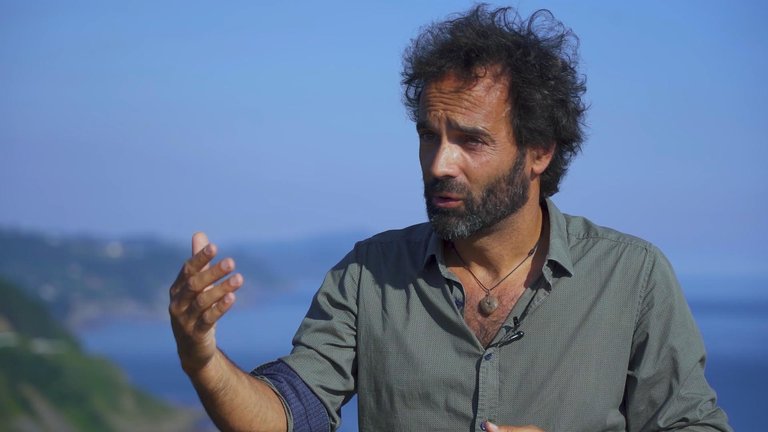“Our species is but a small anecdote in this long history”
Asier Hilario Orus (Tolosa, 1977) is a PhD in Geology and Scientific Director of the Costa Vasca Geopark. He is also Chairman of the Geological Heritage Commission of the International Association of Geological Sciences (IUGS). Member of the Board of Directors of the Geoparks Network, works as an evaluator for the UNESCO World Geoparks Programme and is a member of the scientific committee of the International Geological Sciences Programme (IGCP). Few will be able to transmit with such passion and depth the love for the land and the landscape.

What has surprised, agitated or astonished you most since you started working?
I learned geology because I wanted mountains. I wanted to understand the architecture of the mountains. I instantly understood that my interest was not in small details or in rigid scientific disciplines. I've always wanted to understand the broad view of photography. In this journey there is a concept that has surprised me a lot: to understand and internalize the dimension of geological time. I think it's the greatest contribution of geological science to human culture. Understanding that landscapes and geologies change, how civilizations come and go, compels us to recognize that our species is nothing but a small anecdote in this long history. We are nothing more than the last fruit of the evolution of life and the inner strength of the Earth, and its interiorization requires a great deal of humility.
The concept of geological time, “Deep time”, was first explained in the 18th century by the geologist James Hutton. It brings together ideas between science and philosophy, and that's why it's so appealing.
What revolution or discovery would you like to witness?
The revolution I'd like to see is not scientific. I would like to see a more humanist society that recovers its relationship with nature. Disconnection from nature makes us poorer.
Knowledge of geological science will be fundamental to the management of the main economic and social challenges of the future. In water management and desertification, in measures to combat sea-level rise, in the exploitation of minerals and raw materials necessary for the development of new technologies, and in the transition from old energy sources to new ones, it will be essential to make good use of the knowledge of the terrestrial system that hosts geological science.
I would like to see our science contributing to a better development of society.
Buletina
Bidali zure helbide elektronikoa eta jaso asteroko buletina zure sarrera-ontzian











